Peugeot 508 vs SEAT Leon - Differences and prices compared
Compare performance (360 HP vs 272 HP), boot space and price (44600 £ vs 24500 £ ) at a glance. Find out which car is the better choice for you – Peugeot 508 or SEAT Leon?
Costs and Efficiency:
Price and efficiency are key factors when choosing a car – and this is often where the real differences emerge.
SEAT Leon has a decisively advantage in terms of price – it starts at 24500 £ , while the Peugeot 508 costs 44600 £ . That’s a price difference of around 20117 £.
Fuel consumption also shows a difference: SEAT Leon manages with 1.20 L and is therefore evident more efficient than the Peugeot 508 with 1.60 L. The difference is about 0.40 L per 100 km.
As for electric range, the SEAT Leon performs significantly better – achieving up to 133 km, about 78 km more than the Peugeot 508.
Engine and Performance:
Power, torque and acceleration say a lot about how a car feels on the road. This is where you see which model delivers more driving dynamics.
When it comes to engine power, the Peugeot 508 has a distinct edge – offering 360 HP compared to 272 HP. That’s roughly 88 HP more horsepower.
In acceleration from 0 to 100 km/h, the Peugeot 508 is convincingly quicker – completing the sprint in 5.20 s, while the SEAT Leon takes 7.70 s. That’s about 2.50 s faster.
In terms of top speed, the Peugeot 508 performs to a small extent better – reaching 250 km/h, while the SEAT Leon tops out at 220 km/h. The difference is around 30 km/h.
There’s also a difference in torque: Peugeot 508 pulls distinct stronger with 520 Nm compared to 360 Nm. That’s about 160 Nm difference.
Space and Everyday Use:
Cabin size, boot volume and payload all play a role in everyday practicality. Here, comfort and flexibility make the difference.
Both vehicles offer seating for 5 people.
In curb weight, SEAT Leon is distinct lighter – 1344 kg compared to 1811 kg. The difference is around 467 kg.
In terms of boot space, the Peugeot 508 offers clearly perceptible more room – 487 L compared to 380 L. That’s a difference of about 107 L.
In maximum load capacity, the Peugeot 508 performs to a small extent better – up to 1537 L, which is about 236 L more than the SEAT Leon.
When it comes to payload, SEAT Leon barely noticeable takes the win – 521 kg compared to 469 kg. That’s a difference of about 52 kg.
Who wins the race in the data check?
The SEAT Leon is clearly superior overall in the objective data comparison.
This result only shows which model scores more points on paper – not which of the two cars feels right for you.
Costs and Consumption
View detailed analysis
Engine and Performance
View detailed analysis
Dimensions and Body
View detailed analysis
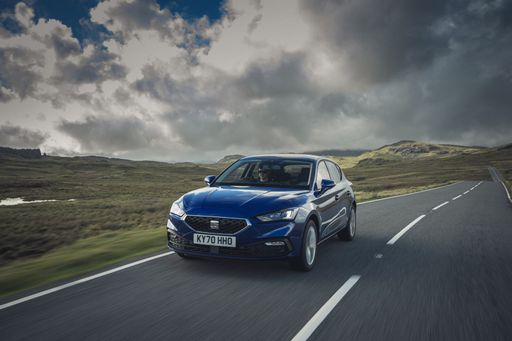
SEAT Leon
Peugeot 508
The Peugeot 508 turns heads with a low-slung, almost coupe-like silhouette and a cabin that feels grown-up and surprisingly premium for the money. On the road it balances comfort and poise with a playful edge, making it a convincing choice for buyers who want something stylish and sensible without shouting for attention.
details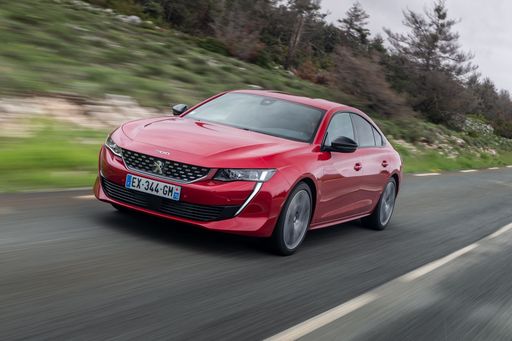
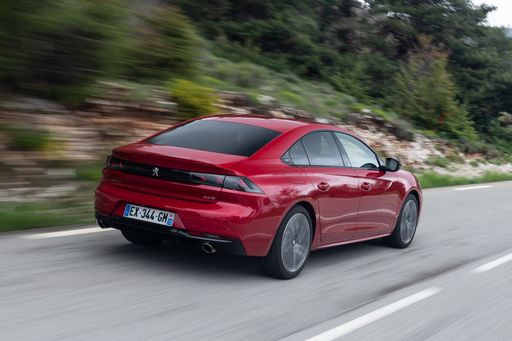
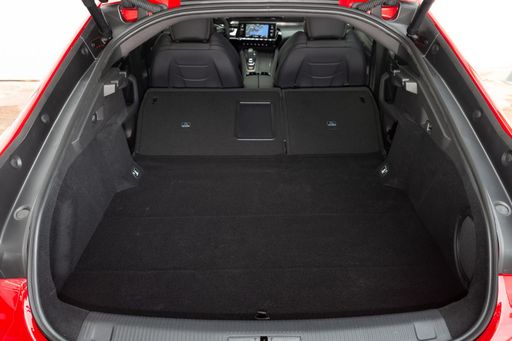
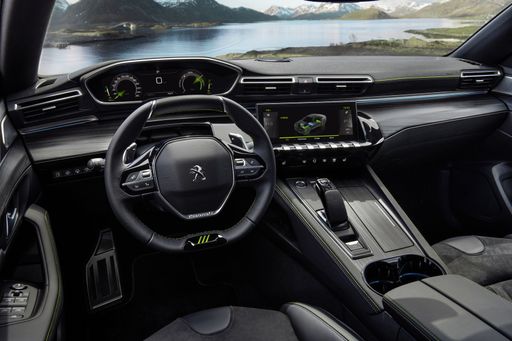
SEAT Leon
SEAT Leon pairs sharp, modern styling with a cabin that's sensible and slightly sporty, making it an appealing choice for buyers who want flair without fuss. It drives with eager composure and offers a neat balance of comfort and agility, so you get everyday usability with a wink of fun.
details
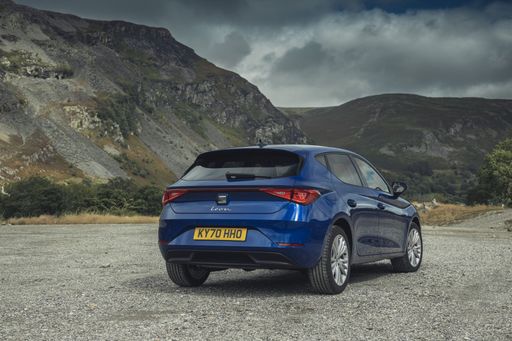
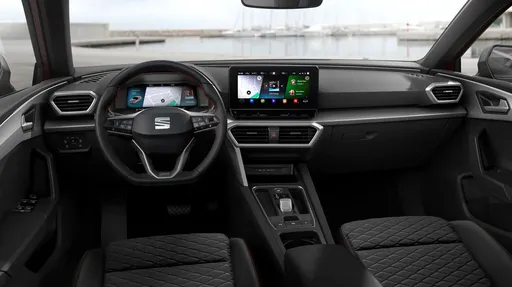
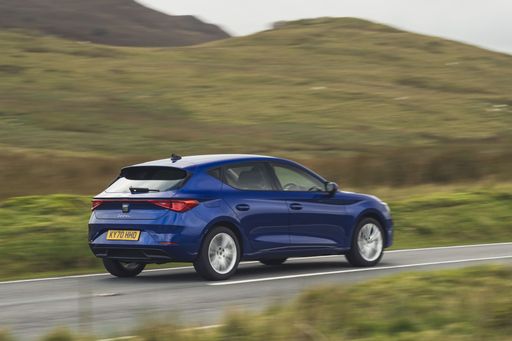
Costs and Consumption |
|
|---|---|
|
Price
44600 - 60800 £
|
Price
24500 - 36400 £
|
|
Consumption L/100km
1.6 - 2 L
|
Consumption L/100km
1.2 - 5.5 L
|
|
Consumption kWh/100km
-
|
Consumption kWh/100km
-
|
|
Electric Range
46 - 55 km
|
Electric Range
133 km
|
|
Battery Capacity
-
|
Battery Capacity
19.70 kWh
|
|
co2
36 - 45 g/km
|
co2
27 - 126 g/km
|
|
Fuel tank capacity
43 L
|
Fuel tank capacity
40 - 45 L
|
Dimensions and Body |
|
|---|---|
|
Body Type
Hatchback
|
Body Type
Hatchback
|
|
Seats
5
|
Seats
5
|
|
Doors
5
|
Doors
5
|
|
Curb weight
1811 - 1941 kg
|
Curb weight
1344 - 1657 kg
|
|
Trunk capacity
487 L
|
Trunk capacity
270 - 380 L
|
|
Length
4750 mm
|
Length
4368 mm
|
|
Width
1859 mm
|
Width
1799 mm
|
|
Height
1403 mm
|
Height
1442 - 1460 mm
|
|
Max trunk capacity
1537 L
|
Max trunk capacity
1187 - 1301 L
|
|
Payload
379 - 469 kg
|
Payload
473 - 521 kg
|
Engine and Performance |
|
|---|---|
|
Engine Type
Plugin Hybrid
|
Engine Type
Petrol, Petrol MHEV, Plugin Hybrid, Diesel
|
|
Transmission
Automatic
|
Transmission
Manuel, Automatic
|
|
Transmission Detail
Automatic Gearbox
|
Transmission Detail
Manual Gearbox, Dual-Clutch Automatic
|
|
Drive Type
Front-Wheel Drive, All-Wheel Drive
|
Drive Type
Front-Wheel Drive
|
|
Power HP
180 - 360 HP
|
Power HP
116 - 272 HP
|
|
Acceleration 0-100km/h
5.2 - 8.2 s
|
Acceleration 0-100km/h
7.7 - 10.5 s
|
|
Max Speed
230 - 250 km/h
|
Max Speed
197 - 220 km/h
|
|
Torque
360 - 520 Nm
|
Torque
220 - 360 Nm
|
|
Number of Cylinders
4
|
Number of Cylinders
4
|
|
Power kW
133 - 265 kW
|
Power kW
85 - 200 kW
|
|
Engine capacity
1598 cm3
|
Engine capacity
1498 - 1968 cm3
|
General |
|
|---|---|
|
Model Year
2024
|
Model Year
2024 - 2026
|
|
CO2 Efficiency Class
B
|
CO2 Efficiency Class
D, B
|
|
Brand
Peugeot
|
Brand
SEAT
|
Is the Peugeot 508 offered with different drivetrains?
Available configurations include Front-Wheel Drive or All-Wheel Drive.
